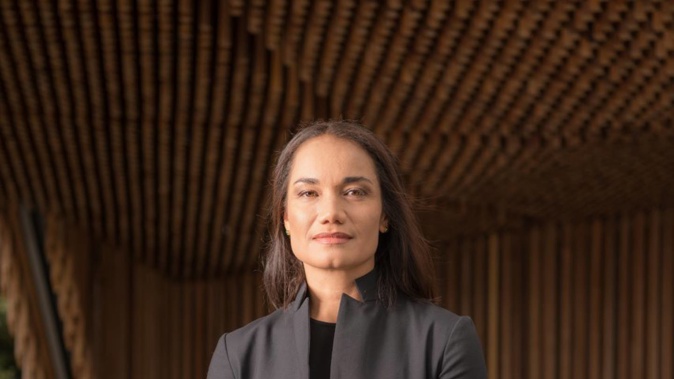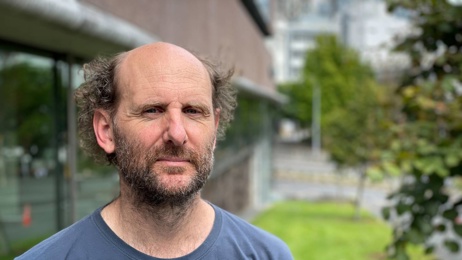

A judge is questioning the future of jury trials as large numbers of jurors fail to show up to court without notice.
In the most recent case only 31 out of 111 people who indicated they would attend jury duty at the Wellington District Court actually appeared on the day.
That was last Tuesday and followed a trial the previous week where just half of the potential jurors failed to appear in the same court.
It's unclear whether any of those people are now facing fines but the issue has raised concerns from the judiciary about what it means if the pattern continues.
"What this means for the immediate future of jury trials I just don't know," Wellington District Court judge Bruce Davidson said in court when 80 jurors failed to show up.
Law Society President Tiana Epati said jury attendance has been a bit of a "mixed bag" recently but Wellington's numbers were concerning.
With Omicron case numbers increasing she believes people may be feeling apprehensive about turning up for jury service.
"We don't know for certain ... but it has to be nervousness around sitting in a room with strangers."
Juries are made up of 12 men and women who are selected from a large pool of potential jurors who have been randomly selected from the Electoral Roll and summonsed to appear in court.
During the selection process names are called from a ballot and the lawyers are entitled to challenge that person, which they often do numerous times before the 12 jury members are eventually selected. People who are selected can ask the judge to excuse them if they have a conflict of interest or are unable to sit on that particular trial.
When 80 out of 111 people fail to turn up for the process it raises concerns about the ability to select enough jurors, given many will be challenged or excused by the judge.
Epati said having only 31 people to choose from was concerning.
"You want a healthy pool because you want the ability to ensure a healthy cross-section of the community is represented," she said.
"There is a fundamental right to a fair trial and you're entitled to be judged by your peers.
"For whatever reason we've had a second week with Wellington where it's a concern and it remains a concern. We'll have to watch and see what happens."
While dozens of Wellingtonians have been reluctant to go to court, Aucklanders have on the most part turned up to carry out their civic duty for three jury trials.
Epati believes this is because the city has lived with Covid in the community for some time, and the settling-in period for other regions is still buffering as communities come to terms with having Covid in the community.
Fifty-three jury trials were originally set down around the country for the week of January 31. But, in what Epati says is a conservative approach by the courts, just 11 went ahead.
Of the 11, eight verdicts were delivered by the end of the week, 16 trials were resolved during the week and four trials were unable to be accommodated due to time.
In that same week 20 jury trials were adjourned or rescheduled for either participants being unwell, unable to comply with Covid-19 protocols or jurors were reluctant to participate.
People who failed to appear for jury service can be fined up to $1000. The Ministry of Justice would not say what has happened in relation to those who haven't turned up in Wellington recently.

Wellington jurors are thinning out, experts think fears of Covid in the community may be to blame. Photo / NZME
Ministry of Justice chief operating officer Carl Crafar said there were no concerns about juror attendance and since the commencement of jury trials this year no courts were affected by a lack of numbers.
Crafar said the ministry and judiciary have worked hard to strike a balance between maintaining access to justice and keeping people safe.
Chief Justice Helen Winkleman acknowledged the numbers that went ahead under the new Covid-19 protection framework as a win.
"It isn't business as usual, but I'm really pleased that we have been able to conduct a considerable amount of work over the last 10 days.
"I'm grateful to the people who came in for jury service, for those involved in court proceedings, and to the profession, for their co-operation and understanding as we change the ways we work to meet the new public health environment."
Despite the new protection framework, extensive health and safety protocols are still falling on tentative ears if the number of jurors showing up to court in the Capital continues to show a worrying decline.
Epati said there was a balance to strike between jurors feeling safe and free of the distraction that Covid may bring and continuing on for the thousands of people awaiting trial since August last year.
"Jury trials have been paused since August and lawyers certainly understand the impact on the community when we delay justice so they're happy to come to court.
"We do have to get on with it the best we can because at the end of the day these are people, they aren't just numbers."
Take your Radio, Podcasts and Music with you









